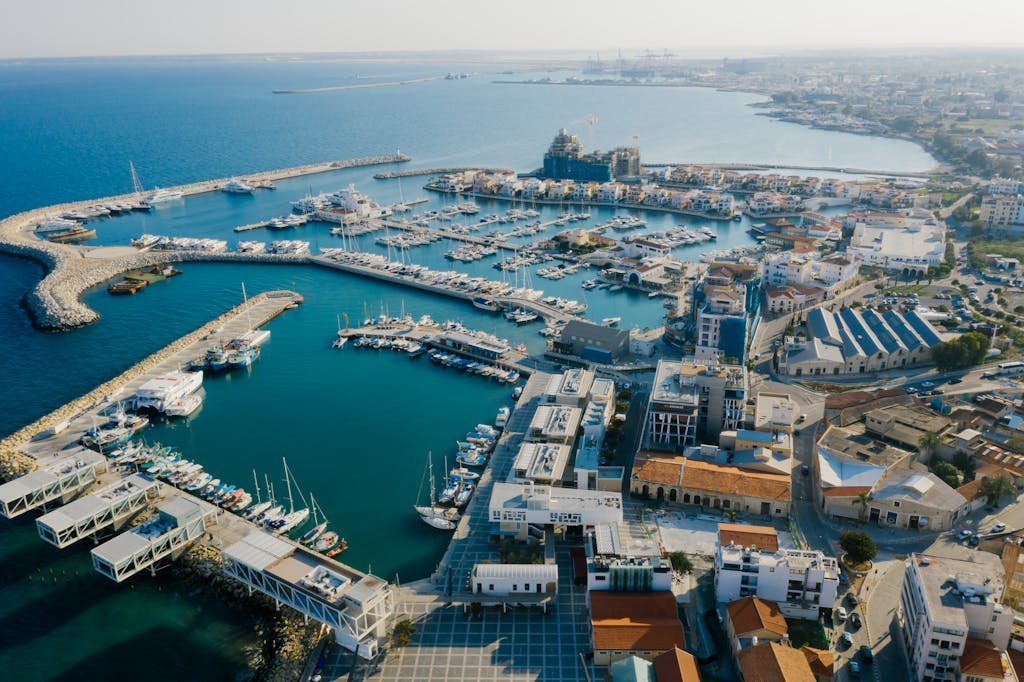Traveling to Cyprus and Turkey: Your Perfect Mediterranean Escape and Schengen Reset
Picture this: you’re sipping Turkish coffee in a centuries-old Istanbul café while the call to prayer echoes across the Bosphorus, or perhaps you’re watching flamingos wade through Cyprus’s salt lakes as the Mediterranean sun warms your shoulders. These aren’t just travel dreams—they’re the everyday magic that awaits when traveling to Cyprus and Turkey, two Mediterranean gems that offer American travelers something truly special.
For those of us over 55 who’ve discovered the joy of slow travel, Turkey and Cyprus present an irresistible combination: year-round warmth, remarkable value for money, rich cultural tapestries, and—crucially for extended European adventures—time outside the Schengen zone that doesn’t feel like exile. These destinations don’t just accommodate your travel style; they celebrate it.

Why Traveling to Cyprus and Turkey Makes Perfect Sense
The Mediterranean beckons with promises of ancient civilizations, turquoise waters, and that unhurried pace of life we’ve all been craving. Turkey bridges Europe and Asia both geographically and culturally, while Cyprus offers island tranquility with surprising urban sophistication. Together, they create the perfect “hub” for extended Mediterranean exploration.
The Schengen Solution That Doesn’t Feel Like Sacrifice
Here’s the practical magic: neither Turkey nor Cyprus are in the Schengen Zone, which means your 90-day European clock resets while you explore cultures that feel distinctly European yet refreshingly different. Cyprus aims to join the Schengen area by end of 2025, but for now, it remains your perfect Mediterranean retreat from Schengen regulations.
Turkey offers visa-free stays of up to 90 days for US passport holders, while Cyprus welcomes Americans for 90 days without advance visa requirements. This flexibility transforms what could be a travel headache into an opportunity for deeper cultural immersion.
Where Your Dollar Stretches Further
Visitors should budget about $140 per person per day while visiting Turkey, but savvy travelers often spend considerably less while living very well. Cyprus requires a slightly higher budget, but both destinations offer exceptional value compared to Western European capitals. Your money buys not just accommodation and meals, but experiences—cooking classes with local families, private guides through ancient ruins, and those long lunches that turn into impromptu cultural exchanges.
Turkey’s Irresistible Cultural Treasures
Istanbul: Where Civilizations Converge
Istanbul captures hearts immediately. The city sprawls across two continents, where ancient Byzantine mosaics share space with Ottoman grandeur and modern Turkish energy. Start your mornings in the Sultanahmet district, where the Hagia Sophia and Blue Mosque create an architectural conversation across centuries.
The Grand Bazaar overwhelms first-time visitors, but returning repeatedly reveals its neighborhoods and personalities. I recommend visiting early morning when merchants are arranging their wares and the lighting creates magical shadows through the covered passages. The nearby Spice Bazaar offers sensory overload in the best possible way—cardamom, saffron, and Turkish delight samples that provide perfect afternoon snacks.
Cross the Golden Horn to explore Beyoğlu’s European atmosphere, where the Galata Tower offers panoramic city views and the narrow streets hide authentic meyhanes (traditional taverns) serving mezze platters and local wines.
Cappadocia’s Fairy-Tale Landscapes
Two hours southeast of Ankara, Cappadocia presents landscapes that seem borrowed from fantasy novels. The region’s volcanic rock formations, carved into homes and churches by early Christians, create a unique accommodation experience. Cave hotels provide modern comfort within ancient walls, many featuring terraces where you can watch sunrise balloon flights drift across the valley.
Göreme Open Air Museum showcases early Christian art in rock-cut churches, while underground cities like Derinkuyu reveal entire civilizations that lived below ground. The region’s walking trails accommodate various fitness levels, from gentle valley strolls to more challenging hikes through rose-colored canyons.
The Turquoise Coast’s Hidden Gems
Turkey’s Mediterranean coastline earned its “Turquoise Coast” nickname honestly. Kaş, a small fishing town transformed into a bohemian retreat, offers excellent restaurants, boutique hotels, and easy access to ancient Lycian ruins. The town’s Thursday market brings locals and visitors together over fresh produce and regional specialties.
Nearby Kalkan provides upscale accommodation options with stunning sea views, while maintaining its Greek village charm. Both towns serve as excellent bases for exploring ancient cities like Patara and Xanthos, where well-preserved ruins tell stories of civilizations that prospered here millennia ago.
Cyprus: Island Paradise with Urban Sophistication
Nicosia: Europe’s Last Divided Capital
Nicosia surprises visitors with its blend of medieval charm and contemporary energy. The old city, enclosed by Venetian walls, contains the island’s best museums, traditional craft workshops, and that famous Green Line dividing Greek and Turkish Cypriot sectors.
The Cyprus Museum houses treasures spanning 9,000 years of island history, while traditional coffee houses provide perfect afternoon breaks. Local tavernas serve authentic Cypriot cuisine—try kleftiko (slow-cooked lamb) or fresh halloumi cheese that bears no resemblance to its exported cousins.
Coastal Charms and Mountain Villages
Cyprus’s coastline offers variety from sophisticated resort towns to fishing villages where locals still mend nets each morning. Limassol combines urban amenities with beach access, while its old town provides authentic local experiences away from tourist areas.
The Troodos Mountains reveal Cyprus’s cooler, greener side. Villages like Omodos showcase traditional stone architecture and wine-making traditions, while Kykkos Monastery offers spiritual tranquility among pine forests. These mountain communities provide perfect day trips when coastal heat becomes overwhelming.
Planning Your Perfect Timing
Weather Patterns and Seasonal Considerations
The Mediterranean climate means traveling to Cyprus and Turkey remains pleasant most of the year, though each season offers distinct advantages. Spring (April-May) brings wildflowers, comfortable temperatures, and manageable tourist numbers. You’ll find archaeological sites accessible without overwhelming heat, and local festivals celebrating seasonal traditions.
Summer (June-August) offers peak beach conditions and longest daylight hours, but coastal areas can reach uncomfortably high temperatures. All-inclusive family holidays to Spain, Cyprus, and Turkey rise sharply, with prices up 23% in Cyprus during peak summer months, making shoulder seasons more attractive for budget-conscious travelers.
Autumn (September-November) provides my favorite traveling conditions—warm seas, cooler air temperatures, and harvest seasons that mean exceptional local produce and festival celebrations. Tourist crowds diminish significantly after mid-September, allowing more intimate experiences at major sites.
Winter (December-March) brings mild temperatures perfect for archaeological exploration and city wandering, though mountain areas can be quite cool. This season offers the best accommodation values and most authentic local interactions.
Managing Crowds and Costs
Tourist arrivals increased by 5,1% in Cyprus during 2024, indicating growing popularity that smart travelers can navigate with proper timing. Avoid July-August if crowds concern you, and book accommodations early for April-May and September-October when weather remains ideal but prices stay reasonable.
Turkey maintained steady tourism performance despite regional challenges, recording approximately 4.34 million arrivals by February 2025, suggesting consistent infrastructure and services for international visitors throughout the year.
Sample Adventures: Making the Most of Your Time
Four Weeks: Cities, Coasts, and Cultural Immersion
Week One: Istanbul Deep Dive Base yourself in Sultanahmet or Beyoğlu for easy access to major sites while experiencing authentic neighborhood life. Spend full days in different districts—the Asian side offers excellent markets and fewer tourists, while the European side contains most iconic landmarks.
Take the Bosphorus ferry to see the city from water level, and consider day trips to Princes’ Islands for island tranquility just an hour from city center. Evening dinner cruises provide romantic perspectives on illuminated monuments.
Week Two: Turkish Coast and Ancient Wonders Fly to Antalya and rent a car for maximum coastal flexibility. Explore Side’s Roman ruins and beaches, then continue to Kaş for several days of relaxed exploration. The region’s ancient Lycian cities provide fascinating insights into pre-Roman Mediterranean civilizations.
Drive inland to Pamukkale’s white travertine terraces and thermal springs, where you can literally bathe in the same pools that Romans enjoyed centuries ago. Nearby Hierapolis offers well-preserved ancient city ruins with minimal crowds.
Week Three: Cyprus Discovery Ferry from Turkey’s southern coast or fly directly to Larnaca. Begin in Nicosia to understand Cyprus’s complex history and vibrant present, then explore coastal towns and archaeological sites.
Paphos Archaeological Park showcases remarkable Roman mosaics, while nearby Akamas Peninsula offers nature walks and secluded beaches. The island’s compact size makes day trips feasible from any base.
Week Four: Mountain Villages and Beach Relaxation Split your final week between Troodos mountain villages and coastal relaxation. Mountain communities offer cooler temperatures and traditional crafts, while beaches provide perfect unwinding opportunities before continuing your travels.
Culinary Adventures Await
Turkish Gastronomy Beyond Kebabs
Turkish cuisine extends far beyond tourist restaurant offerings. Start mornings with traditional Turkish breakfast—cheese, olives, honey, fresh bread, and vegetables that constitute a feast rather than a quick meal. Local markets provide ingredients for apartment cooking, while cooking classes offer hands-on learning experiences.
Istanbul’s street food culture thrives in neighborhoods like Kadıköy, where locals queue for fresh fish sandwiches and seasonal specialties. Meze culture encourages leisurely dining with small plates perfect for sharing and trying new flavors.
Regional specialties vary dramatically—Black Sea cuisine features anchovies and corn bread, while southeastern regions offer spicy stews and unique grains. Wine regions around Cappadocia produce distinctive varieties grown in volcanic soil.
Cypriot Flavors and Traditions
Cypriot cuisine blends Greek and Turkish influences with unique island touches. Fresh halloumi cheese appears in countless preparations, from grilled appetizers to breakfast accompaniments. Local wines, particularly from mountain regions, offer excellent value and unique character.
Traditional tavernas provide authentic experiences, especially in smaller towns where recipes pass through generations unchanged. Sunday lunch culture means extended family gatherings that welcome friendly visitors.
Coffee culture varies between communities—Greek Cypriot areas serve traditional Greek coffee, while Turkish Cypriot regions offer Turkish coffee preparations. Both provide excellent opportunities for cultural exchange and unhurried conversations.
Accommodation Strategies for Comfort and Value
Turkey’s Diverse Options
Turkish accommodation ranges from cave hotels in Cappadocia to restored Ottoman mansions in historic cities. Mid-range properties ($50-100/night) typically include generous breakfasts and personalized service that exceeds international chain standards.
Boutique hotels in restored historic buildings offer character and central locations, while modern resort properties provide familiar amenities with Turkish hospitality touches. Many properties offer extended-stay discounts for visits exceeding one week.
Cyprus Comfort and Character
Cyprus accommodation emphasizes hospitality and personal service. Beach resorts provide full amenities and easy Mediterranean access, while mountain properties offer cooler temperatures and authentic village experiences.
Agritourism properties showcase traditional island life with modern comfort, often including home-cooked meals and local activity arrangements. Urban hotels provide city convenience with surprisingly reasonable pricing outside peak seasons.
Practical Considerations for Seamless Travel
Transportation and Connectivity
Both countries offer reliable internal transportation networks. Turkey’s domestic flight system connects major cities efficiently, while bus networks reach smaller destinations with comfort and punctuality that surprises many visitors.
Cyprus’s compact size makes car rental practical for maximum exploration flexibility, though public transportation serves major routes adequately. Both countries provide excellent internet connectivity and English-language support in tourist areas.
Cultural Sensitivity and Local Customs
Turkish and Cypriot cultures emphasize hospitality and respect for visitors. Dress modestly when visiting religious sites, remove shoes when entering mosques, and accept offered tea or coffee as gestures of friendship.
Bargaining remains expected in traditional markets, while fixed prices apply in modern shops and restaurants. Tipping practices vary—round up bills in casual settings, add 10-15% in restaurants, and tip guides and drivers for exceptional service.
Your Mediterranean Adventure Begins
Traveling to Cyprus and Turkey offers American travelers over 55 everything we seek in international destinations: cultural richness, comfortable infrastructure, exceptional value, and that intangible sense of discovery that makes travel meaningful. These countries welcome mature visitors with genuine warmth while providing the practical amenities that make extended stays comfortable and rewarding.
Whether you’re seeking archaeological wonders, culinary adventures, beach relaxation, or simply the pleasure of slow exploration in cultures that celebrate life’s finer aspects, Turkey and Cyprus deliver experiences that exceed expectations. The bonus of Schengen-zone relief makes them even more attractive for extended European adventures.
Your Mediterranean journey awaits, where ancient civilizations, modern hospitality, and timeless landscapes combine to create memories that last lifetimes. Start planning your adventure to these remarkable destinations—you’ll discover why so many travelers return year after year to explore deeper layers of their complex, rewarding cultures.
